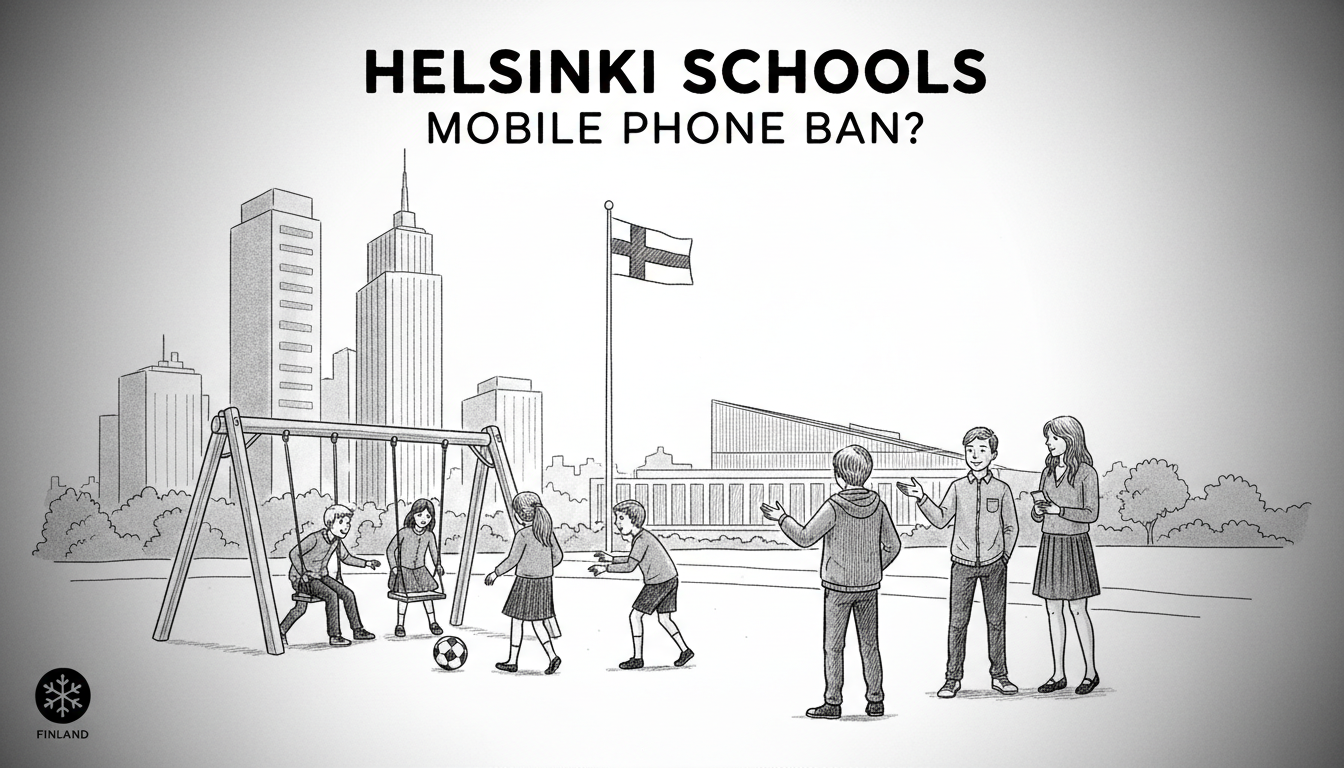Helsinki education authorities are preparing to implement the strictest mobile phone restrictions in Finnish educational history. The city's Education and Training Board will debate a proposal next week that would ban phones during all primary school breaks and most secondary school recess periods. This represents a significant tightening of the national education law revised earlier this year that already prohibited phone use during classroom instruction without specific learning or health-related reasons.
City Commissioner Mari Holopainen of the Green Party has put forward the initiative that would extend the current restrictions to cover break times throughout the school day. The proposal recommends designating all primary school breaks and at least some secondary school intervals as phone-free zones. This development follows the national Basic Education Act amendment that empowered schools to impose stricter limitations on mobile device usage.
Currently, forty-three comprehensive schools across Helsinki have already implemented varying levels of phone restrictions during breaks. Primary school students face near-total bans in almost all institutions, with only four schools permitting limited phone use during specific breaks for grades one through six. Secondary schools show more variation, with nine institutions implementing complete break-time bans while most others restrict usage to specific outdoor areas.
School boards comprising staff and parent representatives updated their disciplinary rules in August following the national legislative changes. If the Education Board approves the official proposal, school administrations will receive strong recommendations to update their regulations with stricter guidelines. The move reflects growing concern among educators about smartphone distraction and its impact on student social interaction and physical activity during unstructured time.
This potential policy shift places Helsinki at the forefront of European educational technology restrictions. While France implemented nationwide school phone bans in 2018, the Finnish approach grants individual municipalities substantial autonomy in implementation. The Helsinki proposal goes beyond classroom restrictions to address what educators describe as the 'breaktime smartphone epidemic' affecting student socialization and physical activity.
Finnish educational policy traditionally emphasizes local decision-making through school boards, making this city-wide recommendation particularly noteworthy. The debate reflects broader European concerns about childhood screen time and digital wellness in educational environments. Helsinki's final decision could influence similar discussions occurring in other Nordic education ministries and municipal governments.
School administrators face practical challenges in enforcing potential breaktime bans, including monitoring compliance and addressing parental concerns about emergency communication. The proposal acknowledges these implementation difficulties while emphasizing the educational benefits of phone-free social interaction and physical activity during school breaks.

